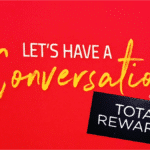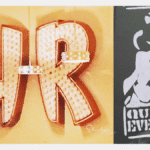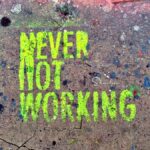The subject of ethics has been on my mind lately. Even before Frank Roche’s excellent post yesterday titled “Mean What You Say.”
Yeah, I know…given our current economic situation, ethics should be at the tops of everyone’s agenda. But I don’t want to talk about banks, mortgage companies, etc. That’s been beaten to death. Let’s take the conversation to an everyday level – because we don’t need to have situations of government bailout proportion to be faced with questions of ethics. It can be the manager who is taking personal gifts from vendors. Or the director who makes sure their friend or family member gets a contract. Or the vice president who fails to disclose a critical piece of information to ensure a decision turns out the way they want it to.
In putting my thoughts together, I stumbled across a good article by Thomas Friedman at The New York Times talking about the importance of focusing on “how” things happen. It’s just not enough to achieve an outcome…it’s important to understand how that result happened. For example, if an organization achieves its financial goals but they intentionally violate a contract in order to make it happen, well that’s a problem.
But, we all knew that…right? Now comes the tough part. If you knew something wasn’t right, what would you do about it?
When faced with adversity, it’s very difficult for some people to speak up. Human nature is for us to operate in a “herd mentality.” We go along with the group, even if we’re troubled with the decision, because we don’t want to be singled out as a naysayer or not a team player. It’s that silence which starts the slippery slope of unethical decision making. Because once we agree with the first unethical decision…then the next one is easier…the following one is even easier than that…and so forth. Before you know it, a person who was initially troubled by the situation has become part of the problem. It simply develops into tacit approval.
I wish there was an easy answer for this dilemma. It would be great to eradicate this world of unethical behavior. (Ahem, now let me take off my rose-colored glasses.) But, people need to get comfortable in their own skin. IMHO, if it means you tick off a few folks or lose a few friends because you stood up for an ethical solution, then so be it. As our parents always told us, our “real friends” would understand and (hopefully) support us.
So, while no one wants to be in this situation, if presented, do you have what it takes to confront unethical behavior?







Puf says
Sharlyn, great post, and I enjoyed Frank’s post as well. I was talking with Mrs. Puf about how do we break the circle the world seems in. It’s such a tit for tat culture and instead of admitting when we’ve done something wrong, we instead point to someone else and say “they did if first.” We all know that’s not right, and yet it is the norm. I argued that maybe it has it’s roots in the bible, the whole casting the first stone thing, and that’s why we have no true credible voice of ethics in our society, because no one is free of guilt. So we
That being said, I also wonder when did “right” become negotiable and situational?
I’m not without sin, I’m certainly far from perfect, but that does not mean that I will allow someone use my failing to justify their own. We all have an obligation to stand up for what’s right, and when we see a friend walking the wrong way, help them get back on track.
J. M. Schneider says
I agree that nobody is without sin, and of course, those who try to do the right thing seem to be invariably stigmatized as the ‘trouble maker’, or ‘do-gooder’, or worse, made to defend every decision they’ve every made or participated in, to get them to back down. All of which leads to a very short path to the curb with a box of your belongings in your hands.
As a security professional, it is often seen as ‘my job’ to say no or be the naysayer, simply because we’re expected to, rather than to be viewed as an enabler by pointing out ways to make things happen within the operational parameters of the program I’m responsible for. In my case, I am often mindful that while I am expected to point out the risks involved in any project my firm or client may be undertaking, it is ultimately their decision to accept the risks or accept my advice about how to mitigate it.
However, I don’t know if ethical dilemmas can be approached similarly without great hazard. One should be able to speak up (to the appropriate ‘powers that be’ – the key being ‘privately’) without fear of retaliation. Paralleling the former model, if the decision makers elect to continue along the unethical path, at least the dissenter has made their minority opinions known. I think the risk comes from making a public issue of it and forcing power players into a defensive posture, prompting them to lash out politically.
Thoughts?
MattyMat says
As a society, as long as we hold people and companies, such as extraordinarily unethical Bill Gates : Microsoft for example, in high esteem– we are doomed. Machiavelian practices have been accepted into our culture– and the super rich are worshipped as geniuses of industry– and the majority of Americans fawn and envy over what they have, thier lifestyles etc., instead of being outraged as to the practices these individuals have put into place in order to achieve this wealth. You’re your own worst enemy.
hr bartender says
Puf – excellent point. All of us are imperfect but that doesn’t mean we cannot stand up for what we believe in.
J.M. – thanks for weighing in. I’d be interested to know your take on how to handle situations where you’ve spoken to the powers that be privately and they basically ignore your concerns. Isn’t there a point where you might have to go public or risk being associated with the unethical behavior?
Matty Mat – you’ve hit on a hot topic right now…the whole idea of checkbook justice. People can do/say what they please because they can write a check and all will be forgiven. Or so they think.
J. M. Schneider says
Quite true. Depending on the circumstances and your particular industry, that could well put you into whistleblower territory. If not, it should be sufficient that you document having made your concerns clear (e-mail can be your friend, but generally, corporate attorneys hate it), while acknowledging that you didn’t have the power/authority to officially intercede. That should insulate your reputation. Sadly, it won’t keep you off the unemployment line.
Oscar Hernandes says
Well the last part of your blog carries the gist of what the article is all about. The most critical and the most difficult decision to take is to follow ethics in this utilitarian world. I rememeber my parents giving me all those advices and moralistic values to confront an unethical move , but most of the times the feedback i used to get from my peers was “Relax dude! everyone does it.”. True. But i had this urge to be different. So to keep it short and simple, you need to have that urge to change the wrongs into rights no matter how much trouble you face. I had lost quite a bunch of friends in that phase but on the other hand had got so many of them that i hardly miss the older ones. 🙂
Oscar Hernandes
Research Analayst
Hirelabs.Inc
hr bartender says
Oscar – this is an excellent point that many times gets lost in the situation. Standing up for your beliefs can enhance your credibility. Often we focus on what we might lose instead of what we might gain. Thanks for pointing out the positive.